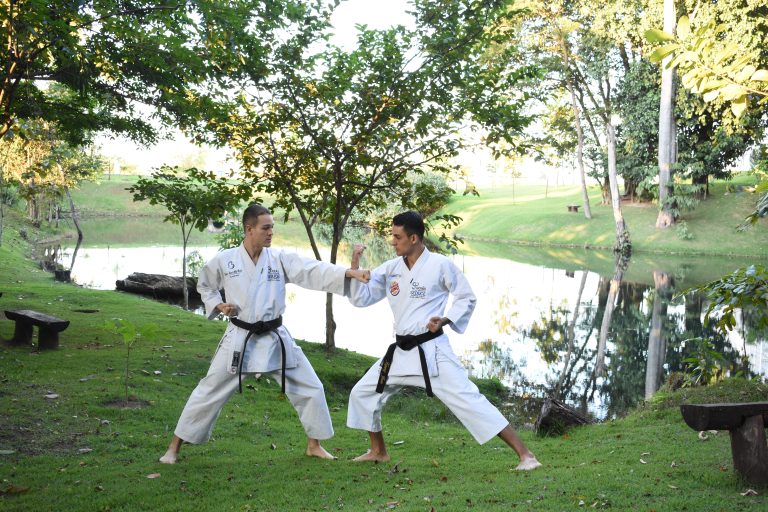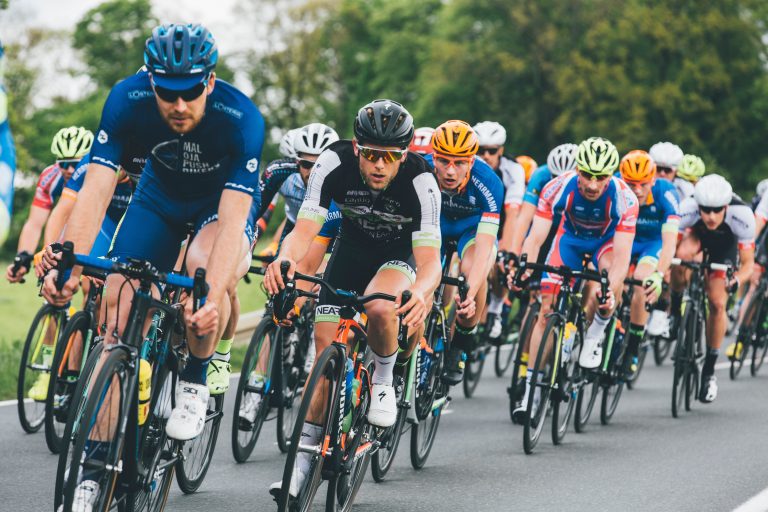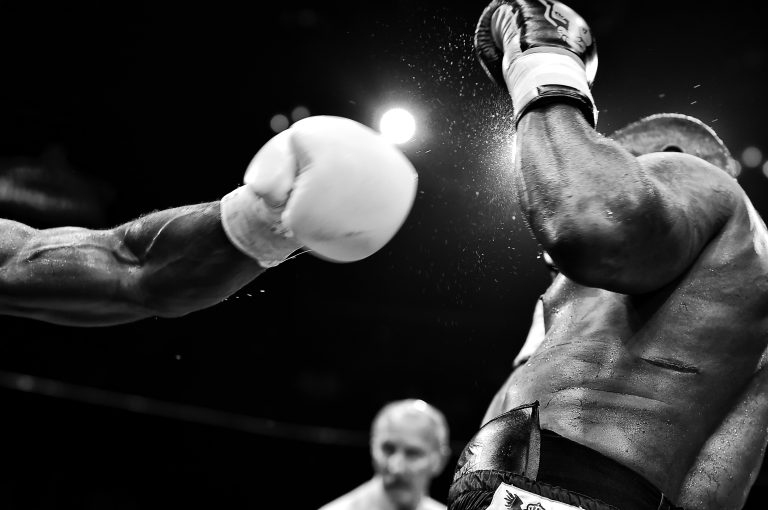Can a 3-year-old start Karate?
Karate is an ancient martial art form that has evolved into a popular sport and fitness activity over the years. Many parents are interested in enrolling their young children in karate classes, but are often unsure if their child is ready for it. One of the primary concerns is the minimum age requirement for starting karate. In this blog post, we discuss whether a 3-year-old child can start karate and provide some useful information for parents to help them make a decision.
The minimum age requirement for starting Karate
The minimum age requirement for starting karate varies from one martial arts school to another. While some schools have set the minimum age as young as two years old, others require children to be at least six years old. The reason for this variation is that each school has its own teaching style and curriculum. However, most karate schools set the minimum age requirement at around four to five years old.
The physical and mental preparedness of a 3-year-old for Karate
As a parent, you should consider the physical and mental preparedness of your child before enrolling them in karate classes. At the age of 3, most children are still developing their gross motor skills, which involves the use of large muscle groups to control movement. It may be challenging for a 3-year-old to perform the complex movements and techniques required in karate.
Moreover, young children often have shorter attention spans and may find it difficult to stay engaged for an entire class. Karate classes require a high level of discipline, focus, and attention, and may not be suitable for all 3-year-olds.
The Benefits of starting Karate early
While a 3-year-old may not be physically or mentally ready for karate classes, starting at a young age can have many benefits. Karate helps children develop discipline, self-respect, and self-confidence. It also improves physical fitness, balance, coordination, and flexibility.
Starting karate classes at a young age can also instill healthy habits and an interest in fitness, which may continue into adulthood. However, it’s important to note that parents should not force their child into karate classes if they are not ready or interested.
Alternatives for 3-year-olds
If you’re interested in enrolling your 3-year-old in a martial arts program, there are alternatives to karate that may be more suitable. Programs like toddler gymnastics, dance, or basic tumbling classes can help young children develop their gross motor skills, balance, coordination, and agility. These classes also provide a fun and safe environment for children to play and interact with other kids.
Can a 3 Year Old Start Karate? Frequently Asked Questions
If you’re a parent of a young child and looking for an activity that may help to develop their physical and mental skills, you might have considered enrolling them in a martial art class like karate. However, you may wonder if your child is too young to start karate. Karate can be a physically demanding activity, and parents worry about their child’s safety and whether they will be able to participate. In this blog post, we’ll answer some of the most frequent asked questions about whether a 3-year-old can start Karate to help guide you in making a well-informed decision.
What is Karate?
Karate is a type of martial art that originated from Japan. It involves a series of techniques, including punches, kicks, strikes, and blocks. Karate is not only focused on self-defense but also on improving one’s physical and mental abilities. The practice of Karate involves training the body and mind through a series of movements or katas.
Is 3 Years Old Too Young for Karate?
The answer to this question is not a simple yes or no. It depends on various factors, including the child’s physical and mental capacity, maturity, and interest in Karate. Parents should understand that 3-year-old children have a shorter attention span and may have difficulty following instructions. However, some children may be physically and mentally advanced and able to participate in Karate classes.
What Are the Benefits of Karate for a 3-Year-Old Child?
Introducing your child to Karate at an early age may bring some benefits, including:
- Help in developing coordination, balance, and strength
- Improvement in listening and following instructions
- Increased confidence and self-esteem
- Encouragement to maintain a healthy lifestyle
- Learning self-discipline and self-control
- Introduction to social skills by making new friends
What Should I Consider When Choosing a Karate Dojo for My Child?
Choosing the right Karate dojo for your child is as important as choosing the activity itself. The following factors may help in selecting the right dojo:
- Check the instructor’s qualifications, experience, and credentials
- Observe a class to get an idea of teaching methodology and class dynamics
- Ask other parents for recommendations and read online reviews and ratings of the dojo
- Ensure the dojo provides adequate safety equipment and follows safety protocols
- Check the availability of classes and whether that fits you and your child’s schedule
What Precautions Should be Taken When Enrolling a 3-Year-Old in Karate?
Karate classes for 3-year-olds should be designed to minimize injury and accidents. Some of the precautions that should be taken are as follow:
- Ensure the classes have a lower student to teacher ratio to ensure better supervision
- Avoid any rigorous activity, such as high kicks or throws that can lead to injury
- Ensure the child is wearing appropriate safety gear such as headgear, gloves, and shin guards
- Avoid training on hard surfaces or floors
What Can I Do to Support My Child in Karate?
Encouraging your child is crucial in finding confidence, motivation, and love for the activity. Here are some ways you can support your child in Karate:
- Attend their classes and cheer them on during practice and performances
- Encourage a positive attitude and reinforce good behavior at home and in class
- Reinforce listening, discipline, and concentration exercises at home that they learned in class
- Reward them with praise or small treats (but not food) for milestones and accomplishments
Can a 3 Year Old Start Karate? A Comprehensive Guide
Introduction
Karate is a traditional Japanese martial art that is not only a great form of exercise but also teaches self-defense, discipline, and confidence. Many parents wonder whether their three-year-old child can start learning karate. In this guide, we will answer all your questions about whether a three-year-old can start karate.
What is Karate?
Karate is a martial art that originated in Okinawa, Japan. It focuses on striking techniques, such as kicks, punches, elbow strikes, and knee strikes. Karate teaches students how to defend themselves in dangerous situations and promotes mental discipline and physical fitness.
Benefits of Karate for Young Children
Karate is an excellent activity for young children because it offers both physical and mental benefits. Here are some of the benefits that karate can provide:
-
Physical Fitness:
Karate involves a lot of movements that promote physical activity, and it can help improve a child’s endurance, coordination, and strength.
-
Self-Defense:
Children who learn karate can learn how to defend themselves in dangerous situations, which can help them feel more confident and secure.
-
Mental Discipline:
Karate focuses heavily on mental discipline, including concentration and focus, and can help improve a child’s attention span and self-control.
-
Confidence:
Learning karate can help children feel more confident in their abilities and can help them develop social skills and teamwork abilities.
At What Age Can Children Start Learning Karate?
The ideal age for children to start learning karate is four years old. At this age, children have developed the necessary motor skills and attention span to start learning martial arts. However, some karate schools accept three-year-olds into their classes, as long as the child is potty-trained and able to follow instructions.
How can Parents Determine if their Child is Ready for Karate?
Before enrolling a three-year-old child in a karate class, parents should evaluate the child’s behavior and physical readiness to determine if they are ready for martial arts training. Here are some factors to consider:
-
Attention Span:
A child who is easily distracted may have difficulty following directions and learning martial arts techniques.
-
Physical Development:
A child who has not fully developed their motor skills may have difficulty performing the movements needed in karate.
-
Potty-Training:
Karate classes typically last for 45 minutes to an hour, and children who are not yet potty-trained may have trouble making it through the class without needing a bathroom break.
-
Interest Level:
Children who have a natural interest in karate or other martial arts are more likely to enjoy the classes and stick with them long-term.
What to Expect During a Karate Class?
Karate classes for young children usually last between 30 minutes to an hour and may include warm-up exercises, stretching, and learning basic techniques. The classes are typically taught in a structured and disciplined environment, with an emphasis on respect for the instructor and fellow students.
What Clothing and Equipment are Required for Karate?
Children who start karate classes will need a gi, which is the traditional karate uniform. The gi consists of a white top and pants, and a colored belt that represents the child’s skill level. Some karate schools may require additional equipment, such as protective gear for sparring or a headband to keep hair out of the child’s face.
Conclusion
Karate can be a great activity for young children, as it offers both physical and mental benefits. While children as young as three years old can start learning karate, parents should evaluate their child’s behavior and physical readiness before enrolling them in a class. By following the guidelines outlined in this guide, parents can help their children develop valuable skills and enjoy the many benefits of karate.
Inhaltsverzeichnis






